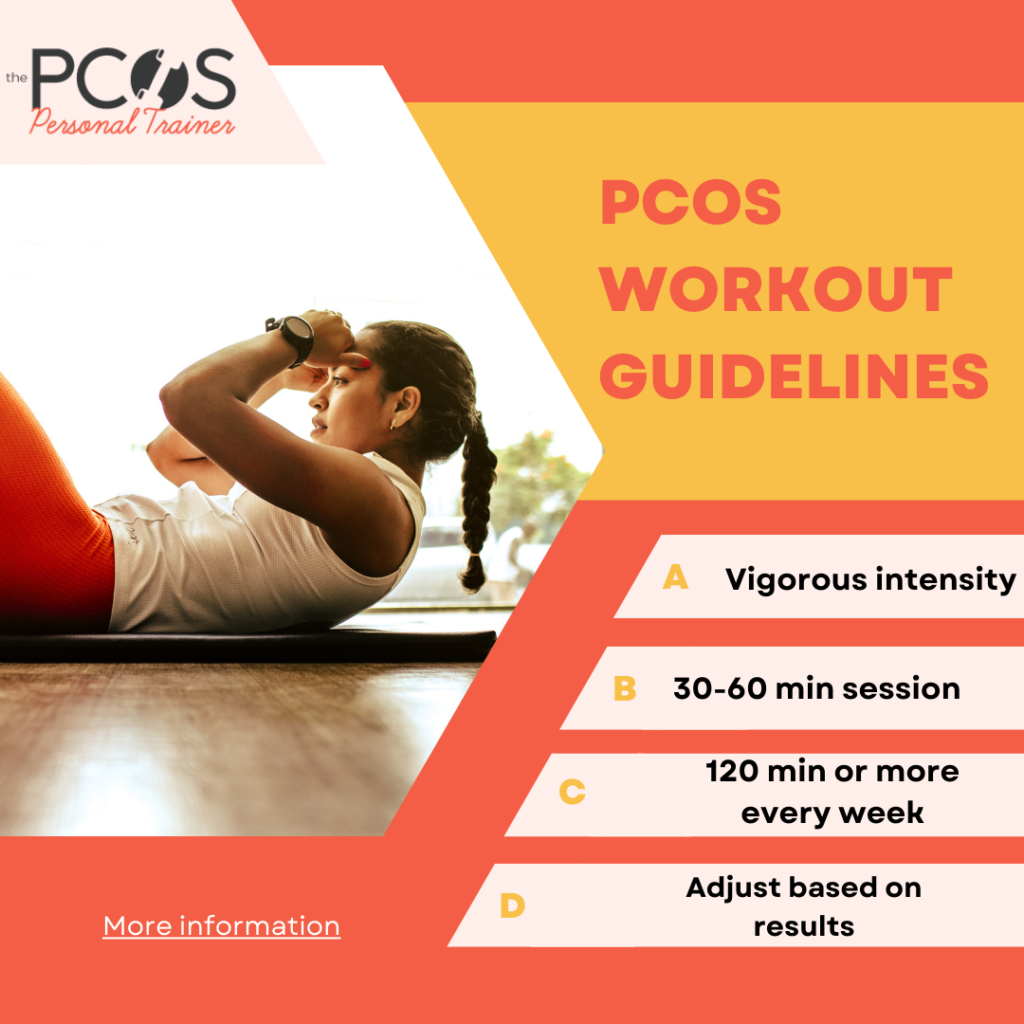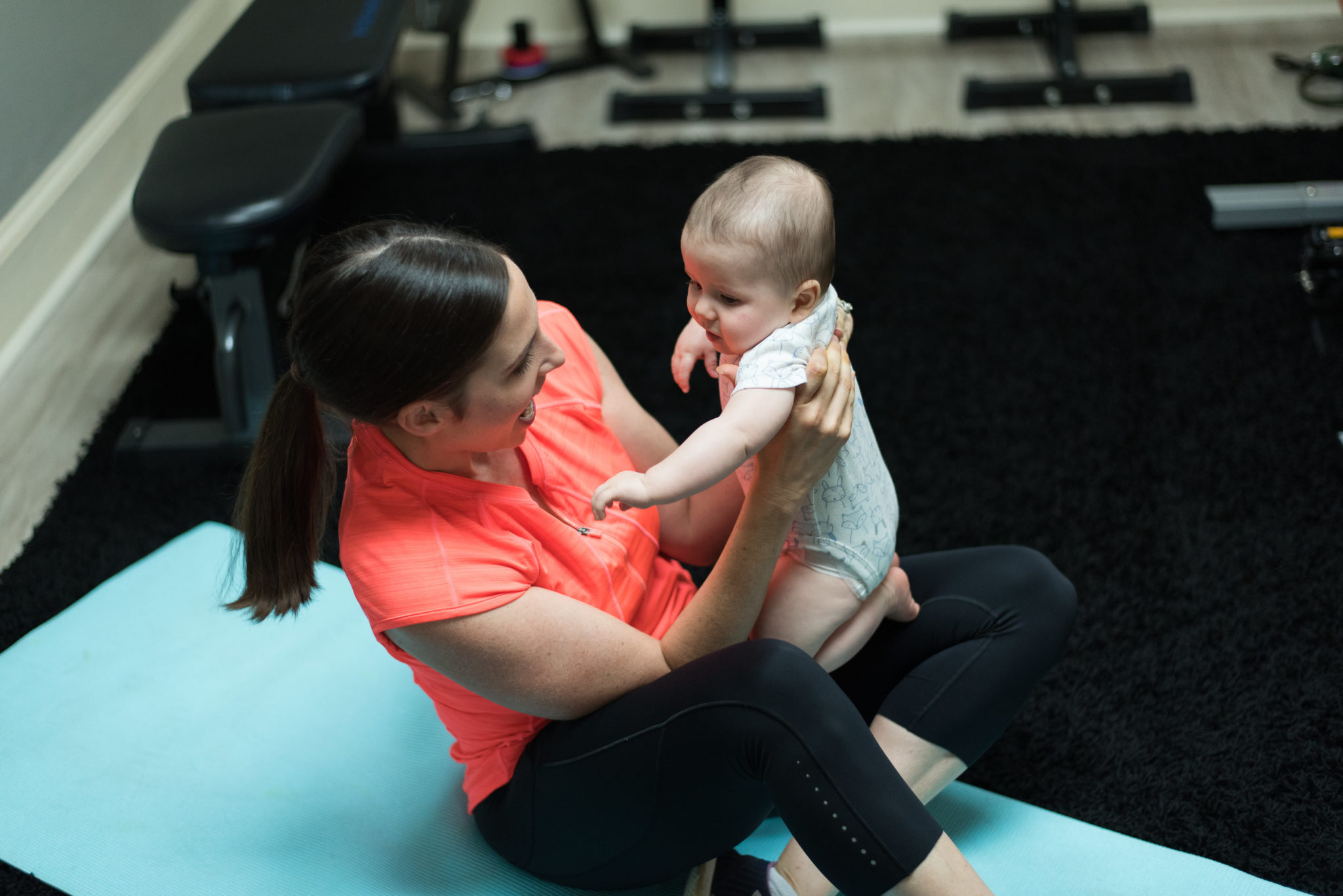Polycystic Ovary Syndrome (PCOS) is a complex hormonal disorder affecting millions of people worldwide. If you’re a cyster (like me), you know that managing PCOS symptoms can be a challenge, especially when it comes to exercise. As a personal trainer and PCOS advocate, my goal is to empower you to take control of your health through smart, effective exercise strategies. This article will guide you through the types of exercise beneficial for managing PCOS and what to avoid to help you achieve your long-term health goals.
Understanding PCOS and Its Impact on Fitness
PCOS is characterized by insulin resistance and sex hormone imbalances that can lead to a range of symptoms, including weight gain, irregular menstrual cycles, infertility, and increased risk of chronic conditions like diabetes and heart disease. Exercise is a proven way to reduce insulin resistance and lower androgens without any side effects. For many women, the desire to lose weight can feel overwhelming, leading to feelings of frustration and failure when results don’t meet expectations. However, it’s crucial to focus on sustainable change rather than weight loss alone.
Why Focusing on Sustainable Change Matters
When it comes to managing PCOS, the cycle of “yo-yo dieting” — losing weight only to regain it later — can have detrimental effects. A 2023 research article on PCOS and exercise indicates that weight cycling can lead to increased fat accumulation and decreased muscle mass, significantly increasing the risk of chronic diseases. Here’s what happens to your body when you crash-diet and gain it back:
- A percentage of every pound you lose will be muscle. That percentage will be higher if you are not strength training.
- When you regain your lost weight, it will nearly always be 100% fat tissue.
- Consequently, you will be back at your starting weight. But since you have more fat and even less muscle, your metabolic rate will decrease, and inflammation will likely increase, too.
- The next time you try to lose weight, losing each pound will take even more effort because you have less muscle (aka a slower metabolic rate).
This nasty pattern affects your physical health and can also impact your mental well-being, leading to stress and discouragement. Instead of focusing on weight loss, establish sustainable lifestyle changes through consistent exercise and healthy habits. This approach will not only help you manage your PCOS symptoms but also promote overall well-being.
The Best Types of Exercise for PCOS
1. Strength Training
Strength training is one of the most effective forms of exercise for women with PCOS. It helps improve insulin sensitivity, reduces androgens, and supports healthy weight maintenance. Additionally, regular resistance training has been shown to enhance body confidence and improve sleep quality. Aim for two to three sessions of strength training per week, focusing on major muscle groups. Exercises like squats, deadlifts, and resistance band workouts can be tailored to your fitness level and preferences.
2. High-Intensity Interval Training (HIIT)
HIIT workouts are gaining popularity for a reason. Studies show that high-intensity cardio can be more effective at reducing insulin resistance and belly fat than moderate-intensity exercise alone. HIIT involves short bursts of intense activity followed by brief rest periods, making it a time-efficient way to get your heart pumping. Incorporating HIIT two to three times per week can significantly improve body composition and metabolic health.
3. Moderate Cardio
While HIIT is beneficial, it’s important not to overlook moderate cardio. Activities like brisk walking, cycling, or swimming can improve cardiovascular health, boost mood, and help prevent PCOS-related complications like high blood pressure. Aim for at least 150 minutes of moderate-intensity cardio or 75 minutes of vigorous cardio (like HIIT) each week, which can be broken down into manageable weekly sessions.
4. Mind-Body Exercises
Mind-body exercises, such as yoga and Pilates, can help reduce stress and promote hormone balance. These practices encourage mindfulness and relaxation, which are essential for managing PCOS. Incorporating activities like yoga into your routine can help mitigate stress and improve your overall quality of life. Aim for at least one session per week.
5. Daily Physical Activity
In addition to structured workouts, aim to incorporate more physical activity into your daily routine. Simple activities like walking, gardening, or even household chores can help combat the negative effects of a sedentary lifestyle. Committing to daily movement — even on days when you’re not doing a structured workout — is vital for managing stress and maintaining hormone balance.
What to Avoid
1. Over-Exercising
While exercise is essential, over-exercising can be counterproductive, especially for women with PCOS. Engaging in intense workouts for over 60 minutes on a regular basis may lead to increased stress levels and hormonal imbalances. If you find yourself constantly exhausted or struggling to recover, it’s a sign that you may need to dial back your workouts. Remember, occasional longer workouts are fine, but consistency is key. Below are a simple set of guidelines to help you get started. Read this article to learn more.

2. Inconsistent Workouts
Inconsistency can hinder your progress and make it difficult to see results. Instead of sporadic high-intensity workouts, aim for shorter, regular weekly sessions. Creating a routine that fits your lifestyle will help you stay on track and promote sustainable change.
3. Neglecting Recovery
Recovery is just as important as the workouts themselves. Ensure you’re allowing adequate time for rest and recovery, especially after intense training sessions. Incorporate rest days and listen to your body’s needs to avoid burnout. Generally, you should not strength train a specific body part two days in a row or do HIIT on consecutive days. Instead, you should take at least 24 hours off. You can learn more about scheduling workouts by downloading my free PCOS strength training guide here.
4. Misunderstanding Strength Training
A common misconception is that strength training raises androgen levels, leading to worsened PCOS symptoms. However, studies show that strength training can reduce androgen levels in women with PCOS. For example, a study that followed women with PCOS participating in a 16-week strength training program found significant decreases in testosterone levels. Embrace strength training as a powerful tool to help you manage your symptoms.
Next Steps
As you navigate your fitness journey, remember that you’re not alone. Many women face similar struggles with PCOS, and connecting with a supportive community can make all the difference.
I’m excited to share that big news is coming — and it’s all about making your PCOS journey easier, stronger, and less frustrating. By signing up for my email list, you’ll be the first to know about upcoming resources, programs, and support tailored specifically for women with PCOS. Plus, you’ll receive my DIY strength training guide to kickstart your journey!
The bottom line
Finding the right type of exercise for PCOS doesn’t have to be overwhelming. By focusing on a balanced approach that includes strength training, HIIT, moderate cardio, and mind-body exercises, you can effectively manage your symptoms and improve your quality of life. Remember to prioritize consistency, recovery, and sustainable changes over fleeting weight loss goals.
With the right mindset and support, you can achieve your fitness goals and embrace a healthier lifestyle. Let’s work together to make your PCOS experience a positive one.
Sign up for DIY strength training guide today and be the first to hear all about the exciting developments coming for our community!






